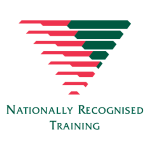First Aid Course
This course covers the skills and knowledge required to provide first aid to a casualty in line with the Australian Resuscitation Council (ARC) and other Australian national peak clinical bodies’ first aid guidelines.
The course is designed for everyone who may be required to administer first aid in a variety of scenarios, including the community and workplace.
Led by our team of education professionals and taught in classroom simulation facilities, you will be guided through a theoretical and practical process in which you will consolidate the learning with real-life situations.







